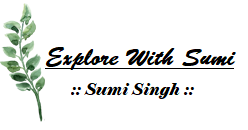The first water droplets of the monsoon make us relieved and joyous. This season can be a remedy of rashes we got due to prickly heat during the summer. But, we too need to be really careful during monsoon with regards to the food we intake and the activities we perform. There are certain health risks we can suffer due to monsoon. The rains are here. Though they provide a respite from the scorching summer heat, they also bring along various ailments. Mostly, monsoon related diseases arise due to consuming unhygienic food and water. If you avoid this, you can prevent several diseases.
Take a look at these foods which are best avoided during monsoons.
1. Fried Food- avoid heavy and oily food as it can lead to an upset stomach. Pakoras sold outside are extremely unhygienic and harmful for consumption as one cannot keep control on the contents used. As the rain lashes against the window, the urge to sit back with a hot cup of chai and pakoras is irresistible. But the high humidity during this season slows down digestion, making us all more prone to tummy upsets and bloating. Eating out brings on the added danger of water-borne bacterial and viral infections. Rainy weather brings along temptation for fried food but do not compromise on your health by heading to road side stalls. Instead try preparing pakoras and tikkis at home. Eating oily food outside can be dangerous to your health as they are cooked in an open environment, making them prone to infections.
2.White Rice- Consuming white rice leads to swelling and water retention. Since issues like water retention, lower immunity and weak digestive systems toll high during this season, you should be careful about what you consume. Opt for brown or unpolished rice.
Switch to brown rice it is healthier in all the senses especially during the monsoon season. Consuming white rice leads to water retention and lowers down your immunity it is better to avoid this rice during monsoon to be on the safe side.
3. Sea Food- If you are a non-vegetarian and have frequent cravings for fish/prawns, monsoon is not the ideal time for this delicacy as it is the breeding time for fish and prawns. However, you can consume chicken or meat to be on the safe side. If at all, you choose to eat seafood, make sure it is fresh and cooked well. Avoid sea food like fish, prawns, crabs etc during the monsoons. Since it is breeding season for these creatures now, fresh sea food is scarce, so you may end up having stomach infections or worse, food poisoning. So keep a lid firmly clamped down on any sushi cravings you have for the next couple of months.
4. Leafy Vegeies- Avoid leafy vegetables as they are grown in swamps and are not stored hygienically before they reach your house (or your tummy). Insects love to nest on broccoli, cabbage and cauliflower so avoid their consumption. It is a known fact the leafy vegetables are highly important for health. However, it is recommended to avoid consumption of leafy veggies during monsoon. The dampness, dirt and mud present in the leaves make these veggies susceptible to many germs, leading to different stomach infections. If it is musthave for someone, it is ideal to thoroughly wash them before cooking them. Leafy vegetables are grown in swamps and are not stored hygienically before they reach the consumer.
5. Fruit Juice From Local Vendors- Fruits or fresh juice sold by roadside vendors are usually cut in advance to make it convenient for them, which comes in contact with the contaminated air and there are high chances of being prone to fatal infections during this time. It is better to have the fresh juice made at home instantly. Anything served or kept in open environment during rainy season is highly contaminable and prone to fatal infections. Thus, one should avoid drinking fresh juices from local vendors and resort to either packed juices or beverages made of home set curd.
6. Chaat- Chaat is another roadside snack every Indian loves to relish. Chaat that includes gol gappas, bhel puri, dahi puri might be made with contaminated water. Chances of usage of contaminated water while making these snacks are high leading to infections. The chutney used in this chaats also need not be hygienic if the water used is infected. These infections can lead to diseases like diarrhea or jaundice. Everything in chaat is not healthy, one can choose healthy options to make chaat at home to avoid infections from roadside food and making it home gives one an option to choose healthy ingredients too. A hot plate of ragda pattice is exactly what we feel like eating in this weather. Yet not only is eating street food a big NO in this weather, it is also exactly the kind of food that will impact your slower digestion system in this weather. And foods like pani puri, where the tangy water is uncooked and served cold, are best avoided to prevent contracting diarrhoea.
Follow me on
Instagram- https://www.instagram.com/explorewith_sumi/?hl=enFollow for more blogs- https://explorewithsumi.blogspot.com/



















some difficult decisions to be made
ReplyDeleteThanks for info
ReplyDeleteWebsite Designing in Bangalore
Nice blog Thank you very much for the information you shared.
ReplyDeleteWeb Development Internship in Bangalore
Website Designing Internship Internship in Bangalore
Internship Program